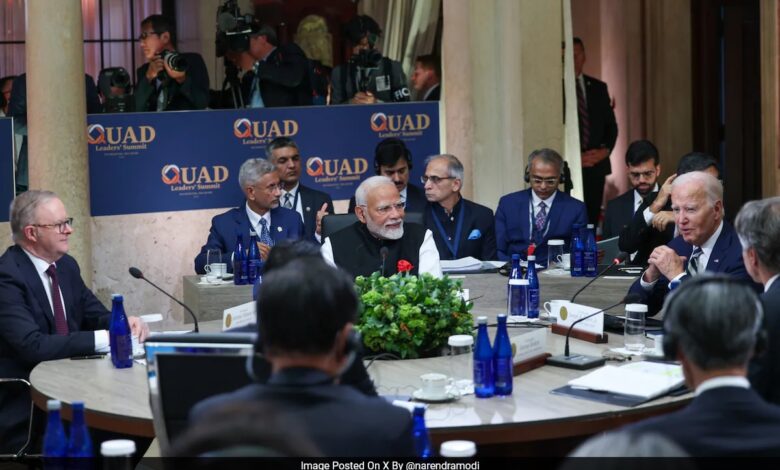
US President Joe Biden has told Prime Minister Narendra Modi that the United States supports initiatives to reform global institutions to reflect India’s important voice, including permanent membership for India in a “reformed” United Nations Security Council (UNSC). President Biden’s statement came during the Quad Leaders Summit attended by PM Modi, Japan’s PM Fumio Kishida and Australia’s Anthony Albanese on Sunday.
The Quad leaders vowed support to reform the UNSC through expansion in permanent and non-permanent categories of membership. In a joint statement, the leaders said that the India-US partnership “is vital to the success of efforts to build a cleaner, inclusive, more secure, and more prosperous future for the planet.”
President Biden commended India’s leadership, particularly PM Modi’s role in the G-20 and the Global South and acknowledged the PM’s recent visits to Poland and Ukraine. The discussion around India’s potential inclusion as a permanent member of the UNSC is part of a larger conversation about reforming global institutions to reflect current geopolitical realities. India, with its large population, expanding economy, and active role in international peacekeeping and diplomacy, has long advocated for such reforms.
“The Leaders reaffirmed their support for the freedom of navigation and the protection of commerce, including critical maritime routes in the Middle East where India will assume co-lead in 2025 of the Combined Task Force 150 to work with Combined Maritime Forces to secure sea lanes in the Arabian Sea,” the joint statement added.
During the Quad summit, PM Modi reiterated the importance of a “free, open, inclusive, and prosperous Indo-Pacific.” PM Modi highlighted several initiatives, including collaborations in health security, emerging technologies, and climate change, aimed at addressing global challenges. He described the Quad as a “force for global good,” committed to fostering cooperation for the benefit of all.
The US and India are working together to expand clean energy manufacturing and strengthen their technological and industrial bases. The Biden administration has announced plans to unlock $1 billion in new multilateral financing through the International Bank for Reconstruction and Development (IBRD) for clean energy projects in India.
Prime Minister Modi announced a $7.5 million grant for cancer testing, screening, and diagnostics in the Indo-Pacific region. The grant forms part of India’s broader ‘One Earth, One Health’ vision, which seeks to share India’s expertise in healthcare and provide assistance in areas such as radiotherapy and capacity building.
The US and India also announced advancements in technology and defence cooperation. The Initiative on Critical and Emerging Technology (iCET) continues to strengthen strategic ties between the two nations in key technology sectors, including semiconductors. A new semiconductor fabrication plant will be established, supported by India’s Semiconductor Mission and a partnership with US companies like Bharat Semi and 3rdiTech.
In defence, the two countries have deepened industrial cooperation, with projects such as the co-development of unmanned surface vehicle systems by Liquid Robotics and Sagar Defence Engineering.




